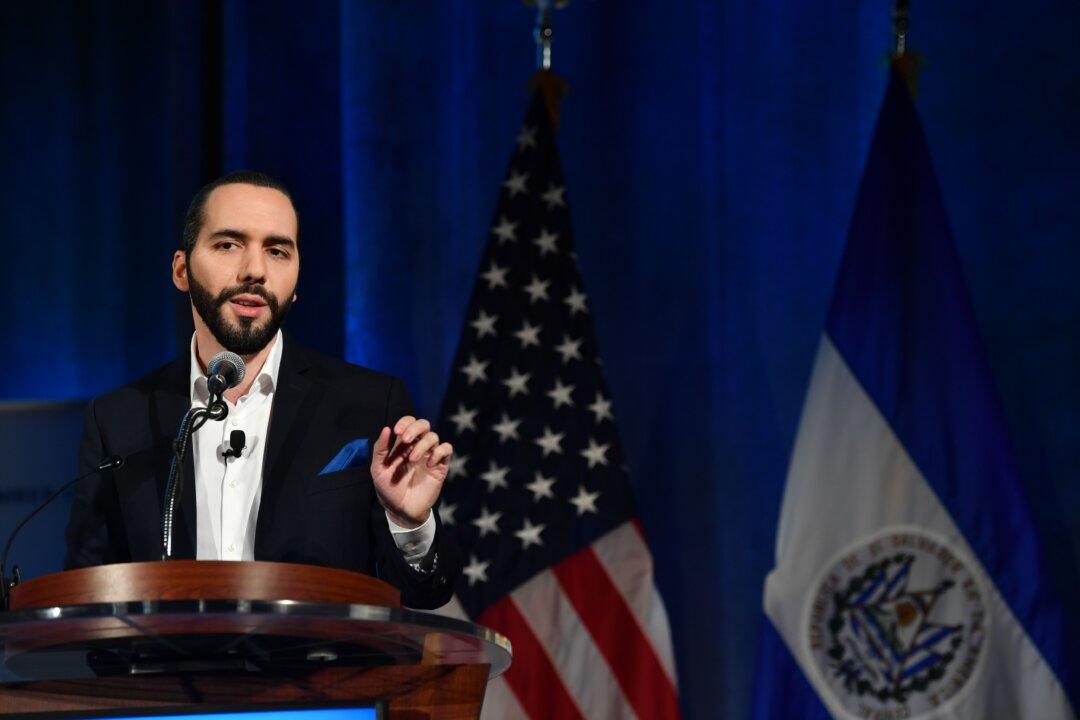El Salvador President Nayib Bukele has said his administration is currently unable to implement an asylum deal made with the United States that aims to prevent uncontrolled migration across the southwest border and disrupt human smuggling operations, admitting the country’s economy is “in shatters.”
In an interview with CBS News’s Sharyn Alfonsi, the 38-year-old leader admitted that at present El Salvador is not capable of honoring the asylum deal he made with the Trump administration late September.





